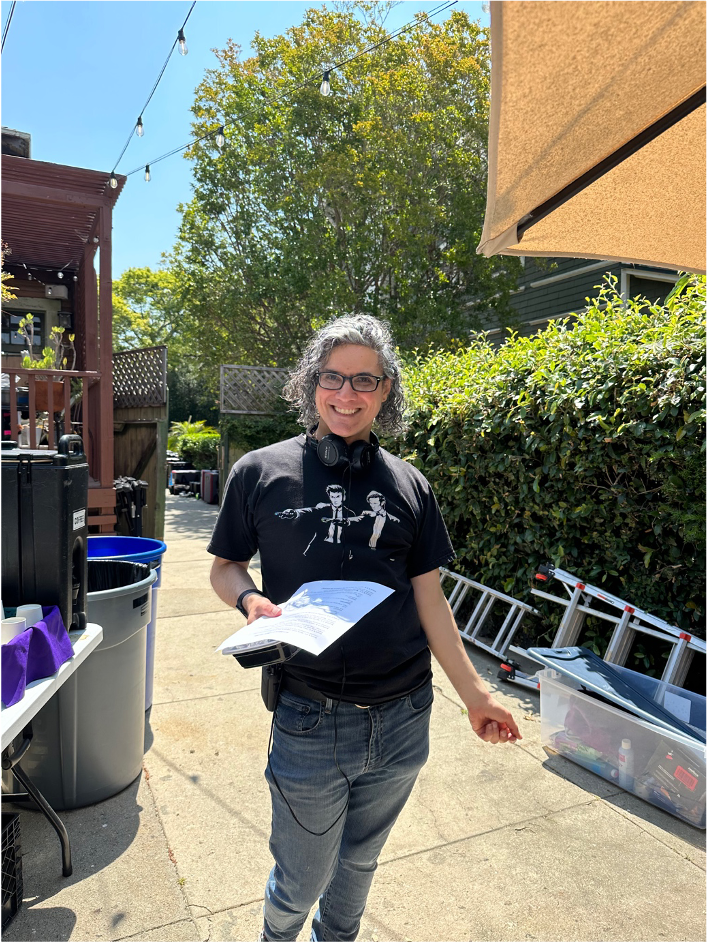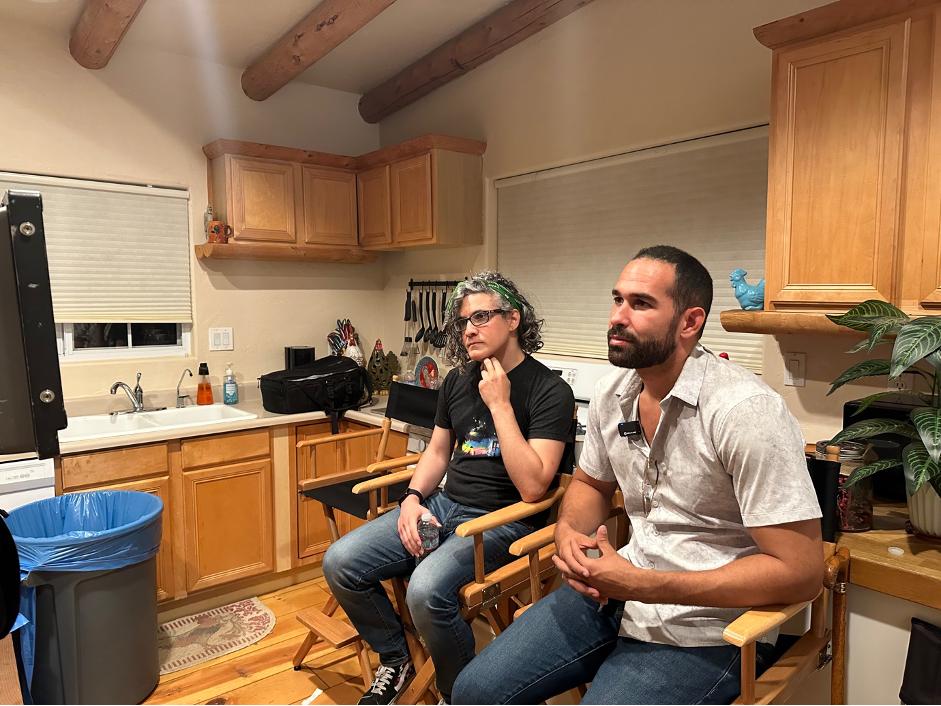The film and entertainment industry today is a high-stakes arena where the line between fleeting moments of fame and lasting impact is often blurred. As digital platforms proliferate and social issues crescendo, there’s a growing demand for stories that do more than entertain—they must also enlighten and provoke thought. The industry finds itself at an intersection of art and activism, looking for narratives that can traverse this complex landscape.
With a career studded with accolades and milestones, Vee Saieh has established herself as an indomitable force in the industry. Her scripts don’t just win awards; they win hearts and minds. With a Silver Prize in Drama for “Magdalena” and a Bronze Prize for her short film script “Shine” at the PAGE International Screenwriting Awards, her narrative craftsmanship is both recognized and revered. Beyond the glamour of awards, Saieh also focuses on the weighty responsibility of a storyteller as a social change advocate. Her project “La Ruta” earned her a Gold Telly for Social Video, proving that her storytelling serves as a vehicle for change, resonating on both aesthetic and ethical frequencies.
Our recent interview with Vee Saieh gave us an unprecedented insight into her success with “Shine,” a compelling tale that garnered the Bronze Prize at the prestigious PAGE Awards. “Shine” isn’t just another story; it’s a narrative alchemy of human emotions and experiences, condensed into the short film format with both skill and sensitivity. Set in Colombia, the story delves into the life of a shoeshiner who faces increasingly challenging situations. Inspired by a real-life individual named Franquito, Saieh adeptly molds the script to capture the essence of resilience and human spirit, proving that language and location are no barriers to universal emotional resonance.
The PAGE Awards, known for their focus on transformative stories, found in “Shine” a narrative that met their lofty criteria. Saieh detailed the intricate journey of crafting “Shine,” from the emotional triggers that inspired it to the challenges of compressing a universe of feelings into a concise screenplay. This award didn’t just offer her an industry validation but opened up new doors, leading to meetings with producers, agents, and managers. It also reconfirmed her faith in her craft, proving that her storytelling mettle could navigate the complexities of human emotions, social issues, and industry expectations.
As the industry leans more toward narratives that can both entertain and influence, Vee Saieh stands as a storyteller for our times—deeply rooted in the nuances of human experiences, yet soaring in the limitless sky of creative possibilities. Whether it’s the piercing light of a Bronze Prize or the radiant glow of social impact, Saieh continues to shine, and it’s a luminescence we all need.
Hi, Vee! Can you share the initial spark or moment of inspiration that led you to pen down the story for “Shine”?
Shine is about a Colombian shoeshiner who faces an ever-more challenging work day that threatens to break him.
There was a man named Franquito who worked with my grandfather and, later, with my father. When I was very young, I would love seeing him in my father’s office as he always had the biggest, brightest smile you’d ever seen. At the time, I didn’t fully understand that his jovial nature wasn’t the result of an easy life, but rather a response to the challenges that life had thrown his way. His positivity just stayed with me as I grew up and formed the basis for the protagonist.
What challenges did you face while compressing such a profound human experience into a short film format, and how did you overcome them?
Sometimes, it seems like shorts are harder to write than features. With features, you have at least 90 minutes to evoke emotion from the audience. With a short, you usually have less than 15. For “Shine,” I relied heavily on dramatic shorthand. I established the character as a diligent shoeshiner who takes pride in a profession many would look down on. Throughout the story, his spirit is battered more and more until he arrives home that night a broken man. His young son, seeing his father so downcast, grabs the shoeshine box and shines his father’s shoes. Shoeshining, something the man took pride in, was denigrated by other characters throughout the script but is reclaimed at the end as an act of love by his son.
“Shine” has resonated deeply with both audiences and industry professionals. What elements of the story do you believe made the most significant impact?
Even though it’s a story set in Colombia with dialogue in Spanish, the emotions it evokes don’t need translation. The protagonist is very sympathetic—a diligent shoeshiner who takes immense pride in his humble trade. It’s hard not to feel anything as he receives abuse from all different sources and his spirit threatens to break. By the end, the emotional framework of the story is so strong that the final scene plays out with no dialogue. If your story is fluent in human emotions, it doesn’t’ matter what language it’s written in.
Can you walk us through the journey of “Shine” from its conception to receiving the Bronze Prize at the PAGE International Screenwriting Awards?
First, I developed the concept of the story—a shoeshiner has a terrible day and his son makes it better by shining his shoes. Then I started adding nuance—the shoeshiner takes immense pride in his work because if he didn’t, it wouldn’t be that big of a deal for his spirit to break. Then I added rising stakes— first his stool is stolen, forcing him to shine on his knees; then his clothes are soiled; he’s taken advantage of by a client who refuses to pay for his work; lastly, he’s forced to shine the tattered shoe-rags of the street urchins who stole his supplies in order to get them back. Then I put it all together. Once you have the setup, rising action, climax and resolution, you pretty much have your story.
How does the story of “Shine” reflect your personal experiences or perspectives on life?
I think writing Shine was my way of saying I want to be more like Franquito. The more I live, the more I realize the amazing strength it must have taken him to face life with nothing but love and positivity, so much so that he became a young child’s favorite person. Franquito was and continues to be an inspiration in my everyday. Dramatically speaking, Shine was also an exercise in thought, wondering what would happen if someone as unrelentingly optimistic as Franquito were pushed to his limit (I know this doesn’t sound nice, but drama requires conflict!).
Did “Shine” undergo multiple revisions? If so, what were some of the most transformative changes the script experienced from its initial draft to the final version?
While the setup and payoff of the story were clear from the start, Shine still underwent multiple revisions in the development process, mostly geared toward fine-tuning the rising stakes. Sort of, how do you systematically pick apart a character’s self-respect so every humiliation is worse than the last? Are his tools of the trade more important than his immaculate clothes? Does he value more the respect of his clients or his ability to provide for his son? There was a lot of development involved so that the story progression would feel natural and it would be believable that, by the end, the protagonist would be willing to swallow his pride.

How has the recognition from the PAGE Awards influenced your career, and what opportunities or doors did it open for you?
The recognition of the PAGE Awards was huge for me, not just with Shine placing third but also Magdalena placing second. Doors suddenly opened, and I was meeting with producers, managers, and agents; eventually, Magdalena got optioned. There was an inquiry to produce Shine, but it was a story that, at the time, I wanted to direct myself.
Beyond the recognition, winning the PAGE Awards was confirmation that I did have talent and did have what it took to make it as a writer. You get so used to hearing “no” that a “yes” can fuel you for years to come, especially an achievement as monumental as winning PAGE twice!
Are there any plans or aspirations to adapt “Shine” into a full-length feature or perhaps produce it as a short film, if it hasn’t been done yet?
At the moment, I don’t have any feature plans for Shine (and am not even sure what a feature version would look like!). However, the short remains very close to my heart, and I’d like to see it made one day. I don’t regret not following up on the production inquiry I received as this is such a culturally specific story that I don’t think a British director would’ve made it justice.
Nowadays, I have no plans to direct so I probably wouldn’t shoot it myself. But who knows, it might be my next short film collaboration with a director!

